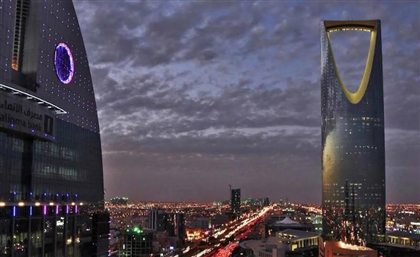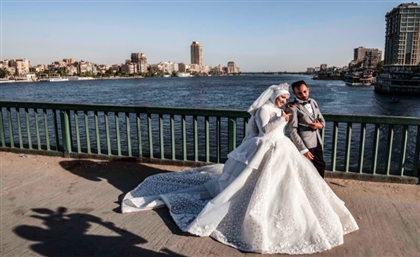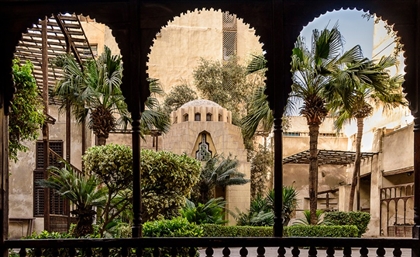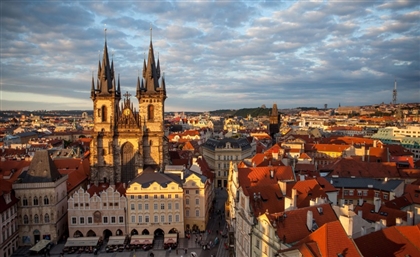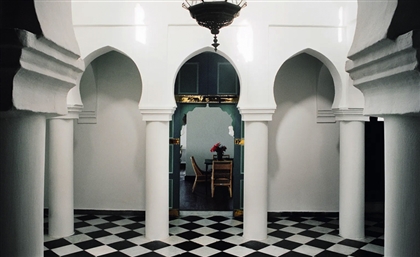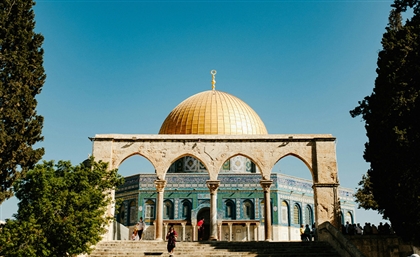How Hisham Kharma's Website Aims to Solve Egypt's Blood Shortage Issue
3andak Dam?
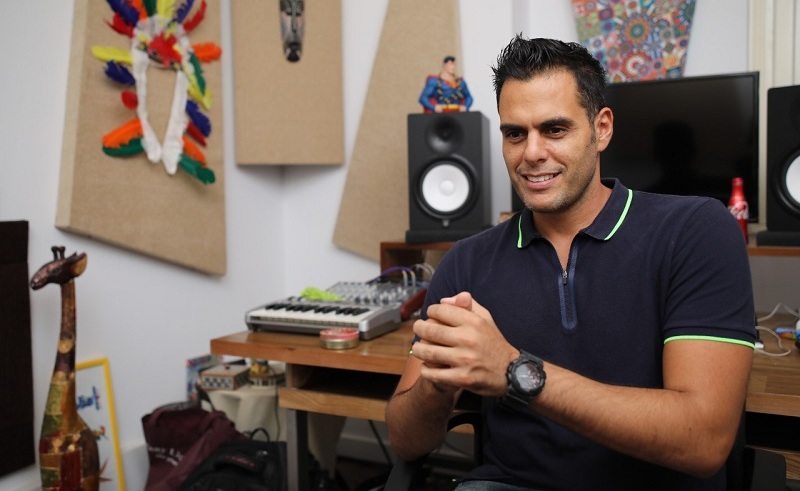
How many times did you come across someone desperate for a blood donation? How many times did you have to deal with corruption and bureaucracy in the health care system in order to find the donor you need?
It’s a story we’re all too familiar with. We lack the mechanisms to provide enough blood for donation. To answer this predicament, Hisham Kharma came up with a website that would make the process quicker and more accessible.
Law 3andak Dam is a service made to run through the veins and arteries of our internet-age and is sort of a social network centered around blood donation. It’s a fast and simple way to connect donors to recipients. When we asked Kharma about the moment he decided to bring his idea to life, he told us the story of his uncle, who was transferred to the hospital one time and severely needed blood. “It was the first time I see the scale of corruption inside some hospitals for myself, and I came about a quasi-mafia running blood trafficking rackets [inside the hospitals]. Although the situation was thankfully resolved, it was picking at my brain,” he described.
The idea festered in Kharma’s brain around the revolution; specifically, the events of Mohamed Mahmoud. Civilian hospitals constantly needed blood for the injured. He realized then that he wanted to do something meaningful to contribute to society: an unconventional solution to an otherwise simple problem. “I would tell myself that the need for blood and the varying attempts at making it accessible is a timely topic, and everyone was looking for an answer.” Kharma had gotten a degree in computer science, which he decided to put to good use.
The initiative began on social media, but was viral, and grew in capacity. It needed to expand, and from there came the website, which also gave him the potential to collect the data he needed to optimize it. “The day following its launch, the president of the Egyptian Blood Bank called me for a collaboration on campaigns. This year is our fourth working with the Bank. We complete each other as a young website with accessibility and reach and an established institution with required resources and staffing, like doctors and transportation.”
It didn’t stop at the government. Collaborators from all walks of life came in contact with Law 3andak Dam. A close example was their participation in a Triathlon organized by The TriFactory to encourage blood donation. Occasionally, the team is driven to collaborate with another entity. Bey2ollak, a social app that was made to help people share traffic updates around Cairo participated by helping donors find the fastest routes to their recipients. “We would always find unconventional ways to streamline the process,” Kharma explained.
In a statement by Dr. Nehad Mosaad, manager of the national blood-transfusion service-centers of the Ministry of Health for Al Masry Al Youm, she said that only 1% of Egyptian donate blood, and that providing enough blood for those who need it would take 2-3% donating regularly. Increasing that would require tripling the current rates, which would require nationwide awareness.
How are donors and recipients connected?
Donors sign up to the website by filling a form which requires their blood type and adds it to a database. The data is then automatically placed on the “donor list” in which you could find each donor’s contact information and blood-type. Recipients have two ways to connect with those donors: either by filling a form online or sending a message to the Facebook page. The request is then quickly processed and spread through all platforms. The other way is directly through the website, where they could access the database, acquire a contact and get in touch with them.
Law 3andak Dam is an online service that takes the shape of a humanitarian initiative during campaigns, but it lacks customer service or follow-ups with the cases because that is not the purpose of the initiative. “We cannot instantly follow-up with each case, but we have discovered that we have saved a lot of people in heavy situations. One of the pleasures of doing this is the gratitude I get from people. ‘You saved my father, my grandmother or someone really dear to me.’ I feel a human connection free of exploitation with people, and I believe Law 3andak dam is the one thing that truly gave my life meaning.”
Kharma is a fellow of Ashok, an international institution founded in 1980 to support creatives and social workers for their leading role in benefiting their societies. He told us he’s asked a lot about the number of cases he solved, but he never has an answer to that question. “I’ve been asked a lot to make reports of the numbers and a headcount of the cases we help, but on services like Law 3andak dam, exclusively accessed during times of emergency, recipients would rarely think of actually signing up or creating accounts. This is the only way to keep book, and it doesn’t work for us. My priority is an efficient user experience: making sending requests and sign-ups as fast and easy as possible.”
Anyone building an initiative or starting up a startup is faced with competitors and enemies, which happened with Kharma at the beginning. He received a message from a group of students who accused him of stealing their idea, and the same happened with another big institution. At the time, he called them to collaborate, rather than compete. “This is a service aiming to save lives, so even if 600 initiatives are pursuing the same goal, the purpose is that goal. I wasn’t starting a restaurant!”
The website’s name was also criticized a lot because it ‘disrupted public taste,’ but he held on to it.
Kharma was faced with many accusations and hits at his goals and intentions. He would often be accused of selling the blood as well. The way the website is put together does not even involve the staff behind it. It directly connects donors to recipients without any intervention from Kharma or his people.
There’s a small team behind Law 3andak Dam: a copywriter and a community manager, as well as a team of people managing the website and the Facebook page, and they’re always ready to receive people in need and connecting them as fast as possible. The team makes no money from the service, and all that matters to them is helping the biggest number of people get the donations they need. In the future, they plan on finding more efficient ways to connect people together, as well as establish secure relationships between local blood-banks all over Egypt, by creating a network specifically tailored for them.
- Previous Article Dr.Sisilove or How (Not) To Diffuse A Bomb
- Next Article The Egyptian Gown Designer Redefining Evening Glamour
Trending This Week
-
Apr 23, 2024




